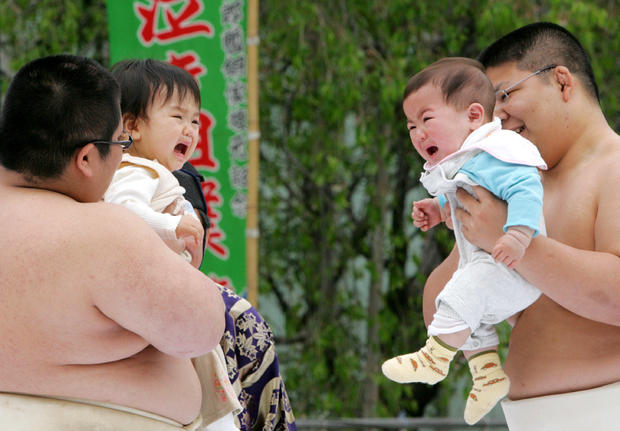Japan's government will play romantic matchmaker in a bid to shore up the birth rate. Experts say it will fail.
Tokyo — In Japan's northeast Miyagi prefecture, residents can find life partners via a government-sponsored, Artificial Intelligence-driven matchmaking service. In Ehime, to the southwest, regional authorities offer a big data-based matchmaking system, while further south, Miyazaki has gone analog, directing potential pairs to exchange handwritten letters.
Throughout the land, there are public and company-sponsored singles parties and "life design seminars" meant to prod young adults onto a concrete timeline for marriage and family. The city of Tokyo even teaches basic dating skills, such as the art of conversation (Hint: Don't just talk about yourself). Photographers provide free flattering portraits; stylists and makeup artists are being deployed to gussy up the dowdy.
Never in Japan's history has the state played such a conspicuous and expanding role in affairs of the heart. And that role is about to get even bigger.
Last month, Prime Minister Fumio Kishida declared that the government would take "unprecedented" measures to tackle Japan's sagging fertility rate. In a parliamentary address, he warned the country teeters on the brink of dysfunction, sliding toward insolvent pension and health care systems, soaring national debt, and economic decline.
Japan has the fastest-aging population of any post-industrial nation on earth. Its birth rate — the average number of children any given woman has — started tanking in the 1970s. The current total fertility rate is 1.3, well below the "replacement level" of just over two kids per woman, which is broadly accepted as the rate needed to ensure a stable population.
The country's gerontocratic leadership is convinced that more marriages are the answer.
A periodic survey by the National Institute of Population and Social Security Research found close to a fifth of men and about 15% of women expressing disinterest in marriage, the highest levels since 1982. Almost a third of men and a fifth of women in their fifties in Japan have never been married.
So, Japan's new Children and Families Agency, set to launch in April, will deploy "marriage support concierges" in each of Japan's 47 prefectures.
"They'll basically add manpower to existing local programs and come up with new ideas" for boosting the marriage rate, said Yuki Nomura, a Cabinet Agency spokesman. The central government will cover 75% of the costs for the concierges, who are being recruited now, among public and private sector individuals with matchmaking expertise.
But many experts say the only way Japan can really save itself is by ditching the "male breadwinner, female carer" norms that continue to undergird policymaking and corporate management.
"Post-industrial countries (like Sweden) that made it possible to balance work and family have not suffered large declines in birthrates," Harvard sociologist Mary Brinton noted in a recent presentation dissecting Japan's demographic missteps.
She noted that Japanese women spend over five times as long as men on household chores, working what she called a "second shift" that discourages couples from having two or more kids.
Some local governments seem to be at least paying lip service to this inequality. The governors of Saga, Miyazaki and Kagoshima have donned yellow aprons over their suits and ties to be filmed trying their hands at vacuuming, ironing and scrubbing. They marveled at the sheer amount of drudgery.
Professor Masahiro Yamada, a sociologist at Chuo University, is skeptical that Japan will escape its existential crisis.
"It's not a problem of matchmaking, it's an issue of more men with unstable incomes," the professor told CBS News. "Even among regular workers, relative incomes are falling, so it's better (for singles) to keep living with their parents" than get married.
Yamada lambasted the government for programs that he says primarily benefit Japan's well-educated elite. In 2021, a fifth of men and over half of women were in part-time, freelance or other non-regular jobs.
Harvard's Brinton said the plight of non-regular male workers is another reason Japan should adopt an egalitarian, dual-earner, dual-carer norm.
"Young men (in precarious jobs) don't feel able to fulfill their role as breadwinner in the family," Brinton said. "Young women don't particularly want to marry these guys."
Lower incomes are far more of a deterrent to marriage in East Asia than in the U.S. or Europe, Yamada argues, as Asian men put more emphasis on unilaterally earning enough to support children.
A truly effective policy, he argues, would double or triple investment in families, instead of seniors.
"Japan is going to sink, right along with its birthrate," Yamada warned. "And South Korea and China will be right behind us."






